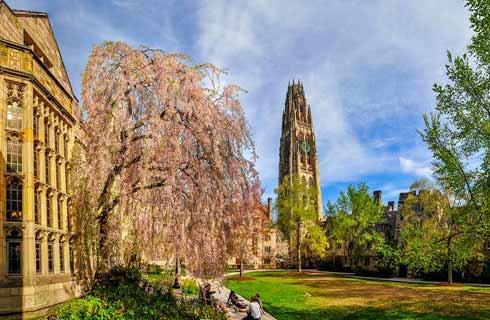- IDP China>
- 课程库>
- 人文科学>
- 地域、民族、文化和性别研究>
- 种族,文化和性别研究>
- Doctor of Philosophy in Sociology - Gender, Sexuality, and Embodiment
社会学哲学博士-性别,性与体现
Doctor of Philosophy in Sociology - Gender, Sexuality, and Embodiment

学历文凭
Ph.D.

专业院系
Department of Sociology

开学时间

课程时长

课程学费

国际学生入学条件
the application form
GRE scores
TOEFL scores (international students without a Bachelor’s degree from a U.S. institution)
one set of official transcripts from each institution attended (please request transcripts early so they are delivered by the application deadline)
a personal statement (approximately 2 single-spaced pages)
Please include the following:
a. Why do you wish to pursue a graduate degree in sociology?
b. What kind of scholarly work in sociology most interests you?
c. Why do you wish to join the graduate program at Rutgers?
d. How do you hope to use your PhD degree?
a writing sample (approximately 10-20 double-spaced pages)
Papers that show sociological thinking are preferable.
a resume
3 letters of recommendation.
Hard copies of any application materials (e.g., official transcripts)
The minimum paper-based TOEFL score is 550. The minimum computer-based TOEFL score is 213, The minimum IBT-internet based TOEFL is Writing 22, Speaking 23, Reading 21, Listening 17, An acceptable IELTS score is bandwidth 7.
IDP—雅思考试联合主办方

雅思考试总分
7.0
- 雅思总分:7
- 托福网考总分:83
- 托福笔试总分:550
- 其他语言考试:NA
CRICOS代码:
申请截止日期: 请与IDP联系 以获取详细信息。
课程简介
Rutgers University has long been known for its strengths in the area of gender and women's studies. The Department of Sociology builds upon those strengths, and today includes eleven core faculty members who regularly offer graduate seminars in race, class and gender, sociology of gender, feminist theory, inequalities, sexualities, the body, gender and globalization, and gender and the self. Our approach to the sociology of gender focuses upon issues of difference and inequality. We look at gender across racial, ethnic, national, sexual, and religious differences, drawing linkages to cultural studies, post-structuralism, race studies, and post-colonial and globalization studies, and to theories of identities, boundaries, performance, and symbolic representation. We are also centrally interested in issues relating to the distribution of resources, comparing the situations of women and men, looking at inequality among women, among men, and at different local, state, and global structural locations.
相关申请
 预科
预科 奖学金
奖学金 实习机会
实习机会 在校学习
在校学习 跨境学习
跨境学习 校园授课-线上开始
校园授课-线上开始 在线/远程学习
在线/远程学习
学校排名

世界排名168
数据源:
泰晤士高等教育世界大学排名
本校相关课程

Doctor of Philosophy in Women's and Gender Studies
学历文凭
Ph.D.
开学日期
课程费用总额


Doctor of Philosophy in Spanish Literature and Culture
学历文凭
Ph.D.
开学日期
课程费用总额


Doctor of Philosophy in Sociology
学历文凭
Ph.D.
开学日期
课程费用总额


Doctor of Philosophy in Social Work
学历文凭
Ph.D.
开学日期
课程费用总额


Doctor of Philosophy in Psychology
学历文凭
Ph.D.
开学日期
课程费用总额


Doctor of Philosophy in Political Science
学历文凭
Ph.D.
开学日期
课程费用总额

其他相关课程

民族研究文学学士学位
 夏威夷大学马诺阿分校
夏威夷大学马诺阿分校学历文凭
Bachelor Degree
开学日期
课程费用总额


妇女和性别研究文学硕士(非洲研究)
 卡尔顿大学
卡尔顿大学泰晤士高等教育世界大学排名:511
学历文凭
Masters Degree
开学日期
课程费用总额


Bachelor of Arts in Race and Resistance Studies
 旧金山州立大学
旧金山州立大学学历文凭
Bachelor Degree
开学日期
课程费用总额


Bachelor of Arts in American Studies
 德克萨斯大学达拉斯分校
德克萨斯大学达拉斯分校学历文凭
Bachelor Degree
开学日期
课程费用总额


Bachelor / Master of Arts in Modern Culture and Media
 布朗大学
布朗大学泰晤士高等教育世界大学排名:65
学历文凭
Combined Baccalaureate and Master's Prog
开学日期
课程费用总额


Bachelor of Arts in Human Development - Women's Development
 加州州立大学东湾分校
加州州立大学东湾分校学历文凭
Bachelor Degree
开学日期
课程费用总额










